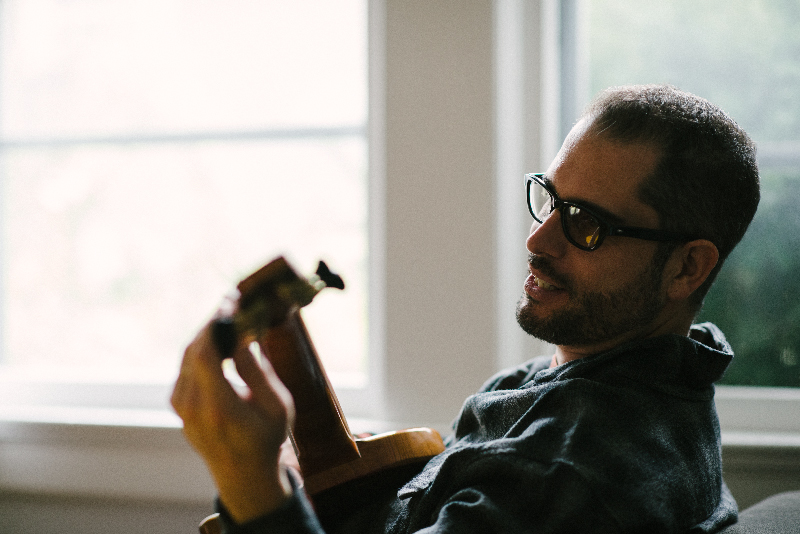
An interview with Charlie Hunter
Guitarist and composer Charlie Hunter has been playing music professionally for almost 25 years, releasing his debut album in 1993 and working with a host of influential figures in jazz, R&B and instrumental music. Over time he has developed a distinct musical voice, owing to his remarkable technique and the expansive possibilities of his seven and eight-string guitars, upon which he is able to play basslines and rhythm/lead parts simultaneously, achieving a form of contrapuntal motion. He is influenced by players like Joe Pass and Tuck Andress, whose own styles informed this approach.
Ahead of his UK tour, we spoke to Charlie about his unique guitars and his musical projects and he discussed some tips for guitarists who are looking to develop their playing.
You released your debut album in 1993 and have since produced a further seventeen LPs, not to mention collaborative efforts and features on other artists’ records. How have you developed as a musician since that first release and what have been the key experiences that have made you the player you are today?
Well, I guess I just keep following the same recipe of playing with people who are better than me and lots of practice.
You have some fantastic and humorous album and track titles. Given that you predominantly create instrumental music, what tends to inspire a title in the absence of a lyric?
Man I don’t know. A pathetic need for unhealthy attention I guess.
You play a custom-made guitar that enables you to play rhythm/lead and bass parts of a composition simultaneously. Tell us about the guitar, how you discovered the maker and what convinced you to make it your main instrument.
Well I’ve been kind of evolving the instrument over the last 25 years or so. Tunings, scale length et al. The instrument I play currently is made by a luthier in California named Jeff Traugott. I also have an instrument made by a North Carolina luthier named Wes Lambe that I also use.
You’re an inspiration to many guitarists worldwide; what would be the key piece of advice you would give to a guitarist looking to improve their ability to your level?
Well I appreciate that you say that but I’m just very small link in a very big chain. What I usually tell the guys and gals who want to go in a direction which will open up some contrapuntal/rhythmic stuff for them is to play drums a bit every day. This will help you understand the interdependence on a much more macro level. Once you begin to internalize that the rest should flow more easily.
In the late ’90s you were signed to Blue Note records and released several albums with the label. What brought you to Blue Note and which recordings from the Blue Note catalogue are key to you as a listener?
Well I was actually offered more money and better deals by a few other companies at the time. What brought me to Blue Note was the integrity of Bruce Lundvall and Tom Evered. They also sent me a box of 200 CDs which helped.
You’ve played on two incredibly influential, Grammy award-winning R&B albums in D’Angelo’s Voodoo and Frank Ocean’s Channel Orange. How did you become involved in those projects and were you aware at the time how successful the albums would be?
Man I have no idea! People Involved in them somehow lost their sense of direction for a minute and I got hired?
Your latest record was released earlier this year through GroundUP music and you featured on Family Dinner Vol. 2 with many of the label’s roster. How was that experience?
The experience was great! Those Snarky Puppy folks are awesome!
You bring longtime collaborator Bobby Previte with you for your UK quartet tour this November, what can we expect from the shows?
Hard to say – I’m hoping I don’t mess up too many of my own damn tunes!









